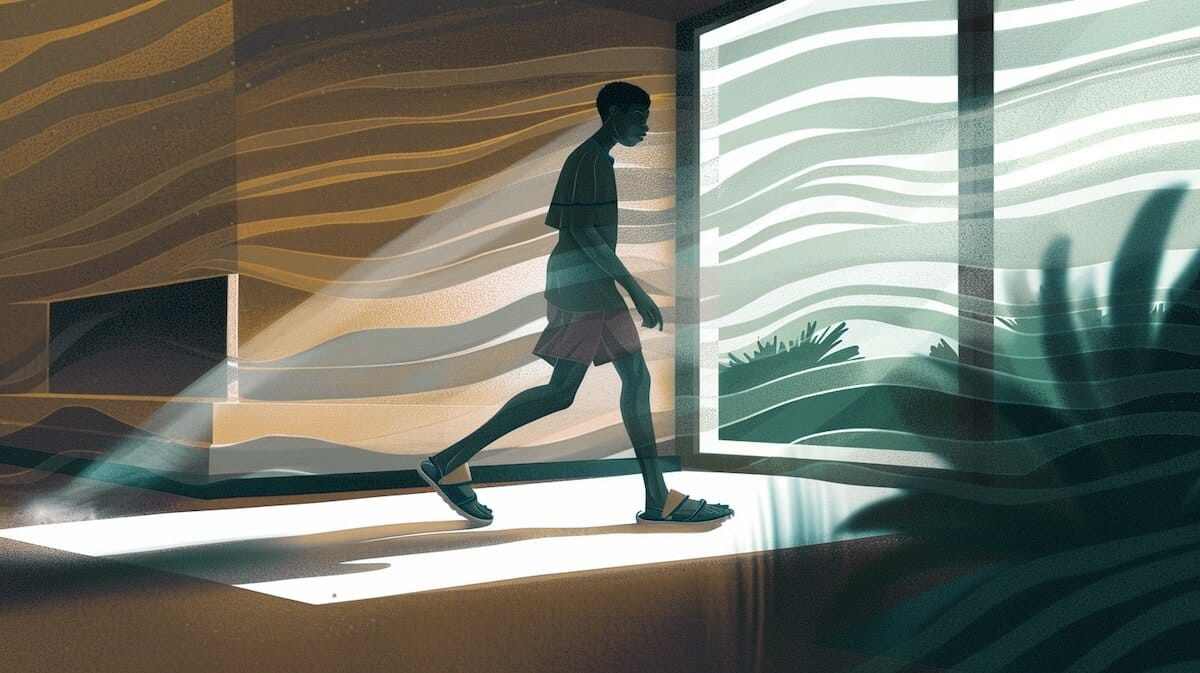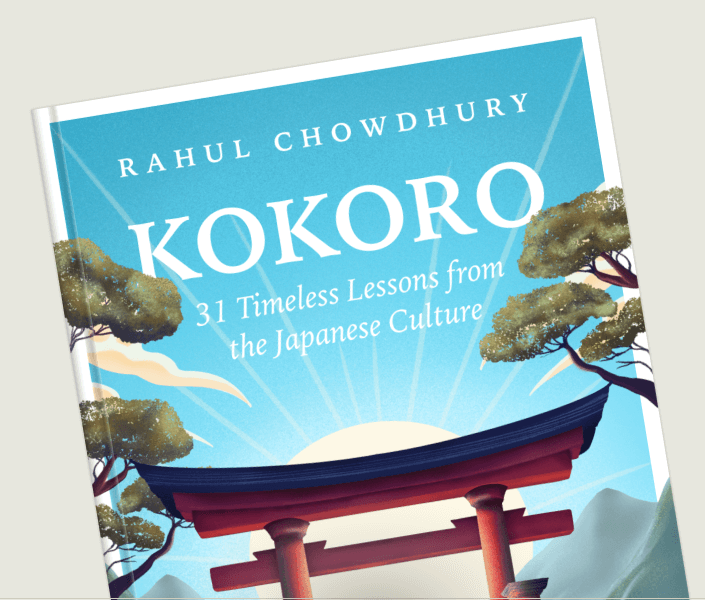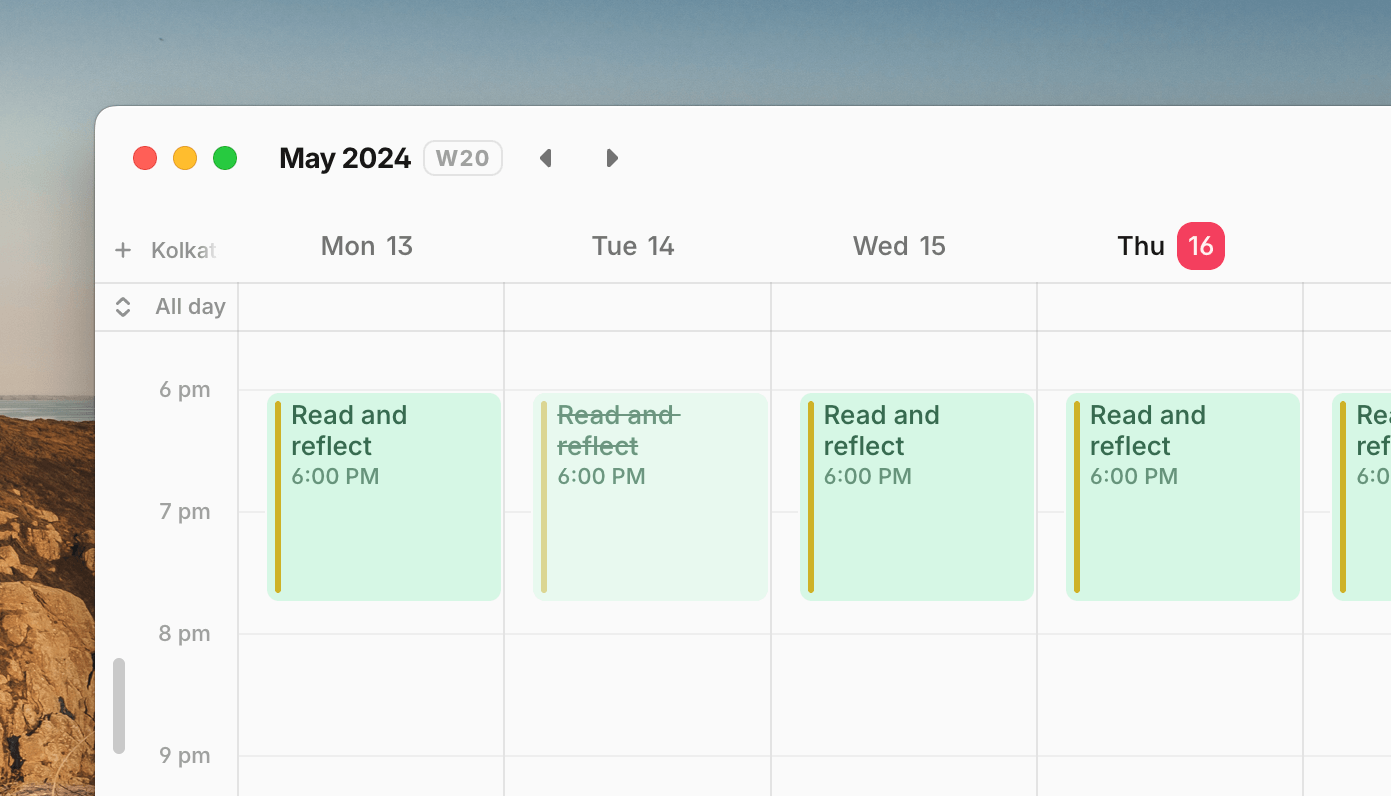
This post is an adapted version of a chapter in my book, Kokoro. Learn more about this concept and 30 other Japanese philosophies by getting a copy.
Japanese philosophies have profoundly impacted my life in the last few years.
Philosophies such as Chisoku, Wabi Sabi, Ikigai, Hara Hachi Bu, and many more have seeped into the fabric of my life and reshaped how I think and handle emotions and everyday situations.
But, one philosophy that has found its way into my daily routine is the philosophy of Yutori.
Yutori is having generous spaciousness in life, where one doesn't rush and has the luxury of absorbing life in its fullness.
It's a beautiful lens that we can wear to comprehend the world around us in a more balanced sense.
In this blog post, I'll take you on a journey through how I start my day with a Yutori mindset, how it has benefited me over the years, and how you can start taking small steps to incorporate it into your life.
It all starts with:
A morning slice of Yutori
My morning routine has been consistent throughout the last few years. I wake up at 5:30 am every morning, spend 30–40 minutes freshening up, and then take my dog for his morning walk:

The walk around the neighbourhood takes another 30–45 minutes, and I'm back home by around 7–7:10 am.
I don't start work until 8 am, so there is an approximately 45-minute gap during which I can enjoy a healthy slice of generous spaciousness, or Yutori, every day.
There's no agenda to follow, and I don't try to optimise that free time block with more work. I do whatever I feel like during those 45 minutes every morning, and it's random.
Sometimes, I watch a video on YouTube that has been on my watchlist for months. For example, one morning, I watched this incredible introduction to robotics from Mark Rober, which was fun and sparked my curiosity about the topic.

Another day, I sat comfortably devouring a fantastic piece on AI gadgets by Ed Zitron.
Last Monday, during that free time, I wandered across the house without any constraints or time pressure, thinking about my projects for the next two months.
While all these activities bring me joy and give me a calm start to the day, the last activity is the cream of the crop, where I purposelessly wander through my mind, connect scattered dots and be creative with what I do every day.
Having a space generous enough to think, introspect, retrospect, and run scenarios in my head is how my creative ideas and boldest decisions have emerged over the years.
It's how I imagined, visualised and formulated the recipe for my book on Japanese philosophies.
But these moments only happen when there is no ticking time clock or when I am not under pressure to generate working ideas.
When you're not thinking, your mind thinks.
Practising Yutori gives me the space I need to think creatively like a human and not function like a machine.
Over time, I've adored these morning Yutori slices every day where I have no pressure to create or get something done. Those 45 minutes are when I feel like I have all the time to do anything I want rather than what I need to do that day.
It helps me ease into the day rather than rushing from task to task the moment I open my eyes in the morning.
But, morning reflections and fun aside:
Yutori is also a stress reliever
Hardly anyone is free from the clutches of day-to-day anxiety and stress.
The sooner you accept that and learn to see these feelings as something to acknowledge and deal with rather than get rid of, the easier life becomes.
Yutori helps here.
When I worked full-time at a corporate office, and even now, when I'm running an online business, I feel pangs of stress every week.
They might stem from the same root, like financial insecurity, or different ones, like a looming project deadline; these feelings bubble up occasionally and remind us that they're there.
Instead of fighting these feelings, I've noticed that taking a break from what I might be doing when I feel intense stress and giving myself the gift of time and space to process these emotions helps calm my nerves.
During such moments, I step away from my desk, walk around the house, relax and try to understand what I'm going through:

Even if a deadline is approaching quickly, taking 10 minutes out of my schedule to calm down, not think about the deadline, and give my mind some breathing space helps me taper my stressful feelings and return to work more resiliently.
Yutori makes this possible because, in the relentless rush to get a million things done in a day and keep up with the fast-paced world, we seldom stop to think, reflect, and enjoy some time with ourselves.
Yutori creates a sanctuary where we can be shielded from the troubles around us and be human instead of a machine, even if only for a few minutes. It gives us pockets of moments when we're not on the clock.
It's a powerful philosophy that not only helps me be more creative but also prepares me to be resilient to whatever life throws at me.

Kokoro
Enjoying what you've read so far? You'll love the book I wrote on 31 timeless Japanese philosophies like this one.
Get Your CopyI remember one night when I was so stressed from things happening in the office that I couldn't sleep properly all night. I twisted and turned and woke up early, still stressed and defeated.
Instead of gobbling the standard advice of pushing through these feelings and moving on, I paused and spent some time in solitude that morning.
Having time and space to think about the problems and my options here helped me plan an exit from the company and eventually start working on my business this year.
With a plan in hand, some of that momentary stress melted away. I felt more in control of how my life advanced than being driven by someone else's whims.
A tiny moment of Yutori did that.
I still get stressed often, but the magnitude is nothing like I felt that night.
And when I do, having some of these Yutori moments helps me deal with this feeling more thoughtfully rather than reacting panicked.
Now, a lingering question that might be on your mind is:
How do you fit Yutori in your life?
Experiencing moments of spaciousness, when you don't have to think about work or other commitments and can embrace the world around you, starts with being intentional about it.
You can wake up an hour earlier or reserve 30 minutes towards the end of each day to bring this luxury of free time into your schedule.
There's no one-size-fits-all solution here. Your schedule would be vastly different from mine and others.
But if you can deliberately schedule some time, even 10 minutes a day or an hour a week, to have some space to think or do something that takes your mind off work, it can ease things up for you.
For example:
If you love photography, you can take your camera and spend an hour or two on the weekend shooting photos around your neighbourhood or elsewhere without rushing. Don't think of it as another chore for the weekend; consider it a gift of quality time with yourself and the world around you:

If cooking is your jam, Yutori can help you savour those delightful moments where you feel connected to food and various kitchen scents without working like a food processor to churn out dinner.
You might be fond of gardening, and being in your garden and tending to your plants with a relaxed mind might evoke that sense of Yutori in you.
Or, like me, you can schedule an hour or so every evening to read, think, play or retrospect:

However you do it, give yourself the gift of unhurried time through Yutori.
It'll be an experience you'll come to love.

If you enjoyed this post, you'll love the 30 other Japanese philosophies in my book, Kokoro. Continue learning by getting a copy here.



 In-depth articles, series and guides
In-depth articles, series and guides
